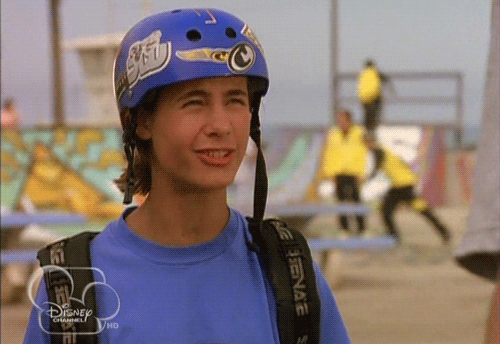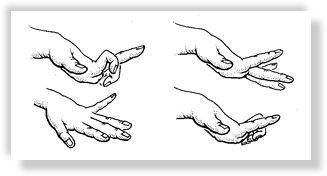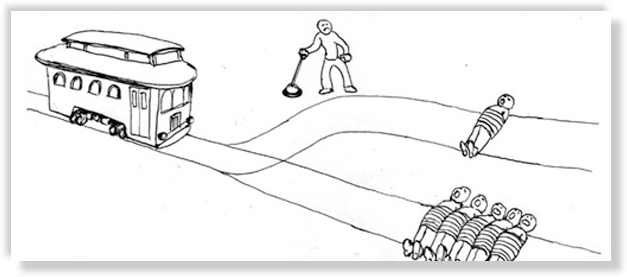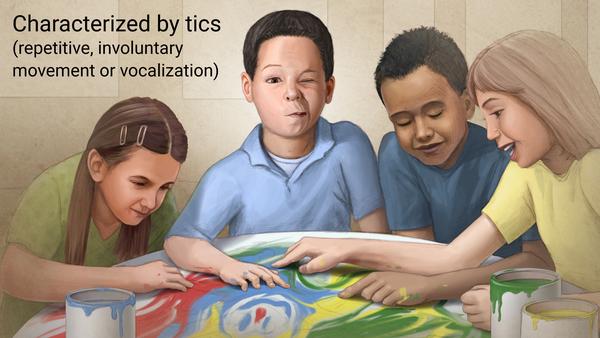this is part 1 of a series on mental disabilities, for more check out OCD and I Have Insomnia.
Tourette’s is a “nervous system disorder” characterized by “involuntary, repetitive movements or sounds.”
we’ve all conjured a goofy dude yelling “F***!” over and over, retorting “I can’t help it!” to avoid getting into trouble.
but when you’re a kid, Tourette’s is an “embarrassment machine” characterized by “people you think are your friends, calling you names.”
here’s my story.
1998
at 8 years old i fell in love with aggressive skating. you know, from this movie:

friends: 2-3 on my block, 5-10 acquaintances down the street.
tic: blinking.
2000
to fuel my Pokemon addiction i began knocking on neighbors’ doors, asking if i can rake their leaves.
at some point my parents think i have a “problem” so i visit the neurologist, who tells me i’m fine.
tic: stomping my right foot.
2004
first year of high school – “cool” is a thing and everybody wants some.
begin dating, difficult to suppress my urges in front of girls.
tic: muttering gurgle sounds, occasional squeaking.
2007
jr prom, zits all over my face.
my first tic is back, but worse. instead of mere blinking, i furiously nod my whole head. constant neck pains and headaches i keep to myself.
tic: bobblehead.
2016
so i skipped a few years – what gives?
perhaps heightened by the stress of 2 full-time jobs and living in San Francisco (terrible place), i graduate to 2 involuntary movements.

tic(s): athetoid hand movements, “equalizing” both sides of my body (mirrored limb behaviors).
2017
fitness is a thing, and soreness makes me superstitious.
5k jogs – culminating the post-mortem of a long day’s workload, mixed with the discomfort of cardio, breed a new monster.
tic: excessive lower shoulder shrugging, cramping.
what Tourette’s feels like
first, i don’t share this for sympathy points. i’m very blessed, and wouldn’t change ~anything about myself even if i could.
instead, for your own curiosity i’ll try to describe the compulsion to Tic (ie: “blink a lot”) and why it’s so difficult not to do those things, even when being caught in the act is embarrassing.
it starts with the official definition:
“Tourette syndrome is a common neuropsychiatric disorder with onset in childhood, characterized by multiple motor tics and at least one vocal tic. These tics characteristically wax and wane, can be suppressed temporarily, and are typically preceded by an unwanted urge or sensation in the affected muscles.”
notice the lack of “involuntary” in this definition.
a lot of folks mischaracterize Tourette Syndrome as involuntary movement, which isn’t true. breathing while sleeping is involuntary. tics are not.
every utter, blink, foot stomp, and shrug i’ve ever done was via my Free Will.
i choose to execute those behaviors because the prospect of not following through creates more anxiety than the shame and strange looks from doing it.
*equalizes typing hands*
Tourette’s is sort of like an itch. you can choose to scratch it, or try to ignore it. but ignoring an itch is hard! by scratching it for just a second, the discomfort subsides.
except, unlike an itch, you can’t quench Tourette’s by simply adhering to its requests. fundamental to the syndrome is that it always wants more.
tic episodes
let’s call these “more” moments, “episodes.”
on some occasions i’ve felt such an urge to tic that i’ve allowed myself 10-20 seconds to go full retard.
- when i’m stressed out (double-booked meetings, full inbox, etc)
- intensely… normal tic urges can be delayed 10-20 seconds, episodes demand immediate attention
- during a physical transition, such as when i’m leaving a room or entering a new one
it is during these episodes where i perform compound tics – a combination of movements, back to back.
while episodes are annoying, what’s most interesting is that they do not plague me when i’m concentrated.
tic radar
it’s 2017 — most of us have great Gaydar.™
for those with Tourette’s, we have Ticdar: the ability to identify strangers with Tics.
walking down the street, i often study certain individuals closely, usually following a double-take (“was that a tic?“) to see if they repeat a specific, non-utilitarian movement.
i’m not sure why i do this; maybe it feels better to know there are other people like me and we’re all in this together.
how to deal with Tourette’s
i regret not telling more people during my childhood.
i lied to myself, thinking “maybe nobody notices.” it’s a silly rationale, but logical to a 10 year old who reasons that the alternative guarantees awareness. it also works because children are imaginative.
and i think a lot of people with Tourette’s do this… we become ninja tic concealers, perfectly timing our movements till someone looks away, or we duck behind a corner, or walk into a bathroom stall.
this doesn’t work, of course. it’s a lie children tell themselves to avoid the truth, because unfortunately it’s usually during childhood that this develops.
to the friends reading this who never teased me – thank you.
and to the friends who did tease me – thank you for keeping it 100.
over time i’ve learned the “should i make friends aware of my Tourette’s” challenge is non-trivial. it’s akin to the the “should i tell my friend John that his wife is cheating on him?” debate.

we can agree in sober conditions that yes, we should tell John.
but after peeling back a few layers, considering the domino effect of consequence, we usually opt to avoid conflict that puts us as the starting line.
same goes with tics. i’ve had friends for years who always pretended they didn’t know, and i’ve met friends of their friends who boldly asked “why do you blink all the time?” during our first encounter.
both of these reactions are OK, and ultimately they taught me what i needed to hear all along — everyone is aware, and it’s up to me to “own” it.
like most of life’s obstacles, i can let Tourette’s define me, or i can shrug it off (just not repetitiously!).
why share this?
i mentioned that i’m not seeking sympathy. so why publish intimate personal details i’m not proud of?
it’s because i want you to be proud of you.
let’s suppose success is a sliding scale, where 0 is homelessness and 100 is Mark Cuckerberg.
now suppose i’m ~55 on that scale, with plans to move 5-10 points in the next 18 months.
if we agree Tourette’s can dampen one’s ability to be successful (it can), then so long as you don’t have Tourette’s, you can outdo my 5-10 point gain.
on the other hand, if you do have Tourette’s, you’ve now observed at least 1 example of a successful person who doesn’t make excuses for the bummer condition.
finally, if you don’t have Tourette’s and don’t think it dampens one’s ability to be successful, what does? (hint: your answer must be more encumbering or embarrassing than a 24/7 compulsive tic.)
interested in learning more?
stay tuned for the next episode — no, not that kind! — about my OCD. i guarantee it will make this Tourette’s business look like child’s play.

Ryan, thanks so much for sharing this. This is really inspirational.
I feel stupid, though. I had no idea the “tics” were voluntary movements. I had never really attempted to learn about what Tourettes really were, but feel I have a much better understanding now.
Best wishes,
Chris
I really enjoyed this one, Ryan. Thanks for sharing
Best player on my college soccer team had Tourette’s – similar blinking tic.
Also, US goalkeeper (Tim Howard) has Tourette’s. He claims it may actually make him a better athlete. Made me recall this piece about him: http://www.bbc.co.uk/news/blogs-magazine-monitor-28128439
Also refers to some possible athletic & musical advantages/tendencies in people with Tourette’s. Research cited might interest you.
We tend to either avoid this kind of candid discussion around disabilities and mental health in the US or end up with sympathy-seeking posts (“poor me” one-upmanship), so appreciate you sharing and how you’ve approached it here.
Hi.
Would it be okay for me to use the cartooned tics picture on a poster for my master’s paper in medicine?
Br,
Hampus
none of these images are mine, sadly, so i don’t have authority to say “yes.”
Powerful piece. Really helped me understand nervous tics better. Appreciate the bravery in sharing this kind of detail about yourself.
My 8yo has Tourette’s. Current tic: smacking his chest and throwing his head up in the air and silent screaming like the Hulk or a professional wrestler. And yes he does it a lot when leaving rooms!! Your post was super helpful. I wish I knew what it is like to be in his brain. He is a cheerful and loving goof, and pretty OK with his tics (for now). He also is the most unbelievably messy person I have ever met. I don’t know if that is related to Tourette’s.
<3
i'm quite a tidy person, although i attribute some of that to OCD-esque features:
https://www.ryanckulp.com/ocd-magical-thinking/
This is honestly something I have spent months searching for. Thank you for being honest, informative, courageous, and vulnerable. You made this relatable and not a wiki article. And for that I thank you…..